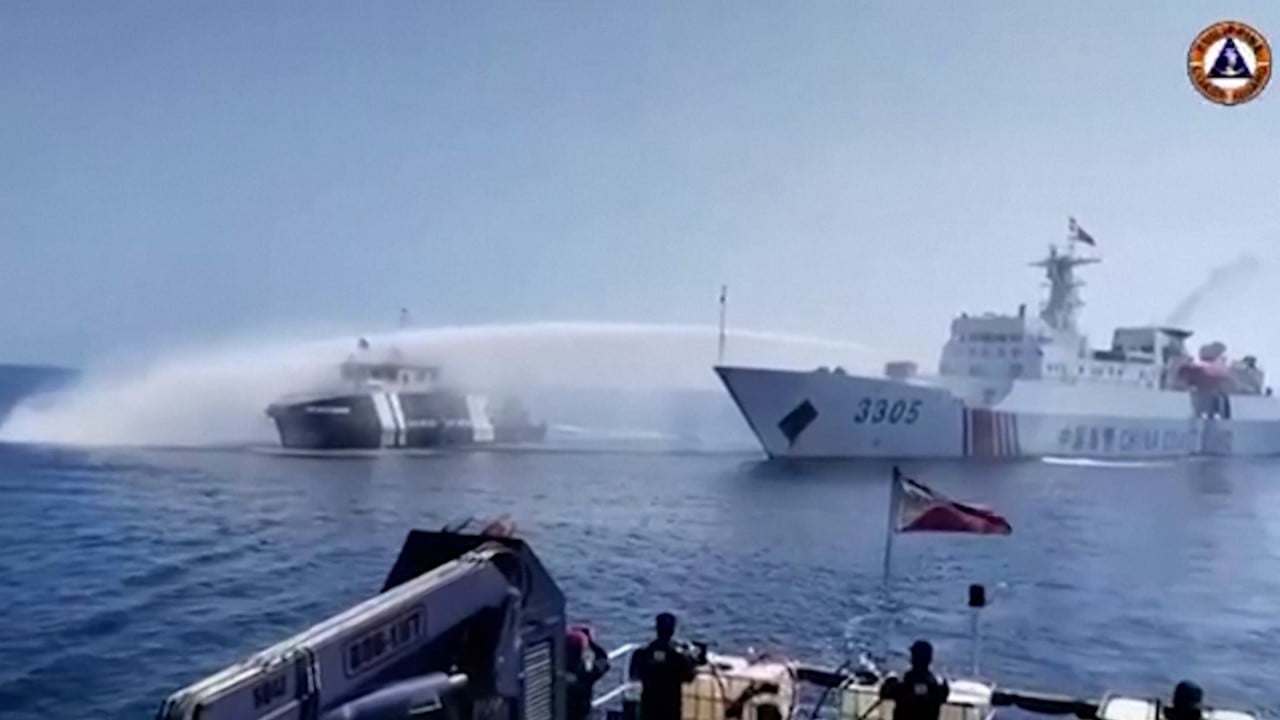
South China Sea: Beijing urged to step up pressure on the Philippines over rival claims or risk domino effect
- Manila must know there is a ‘price to pay’ if it seeks second arbitration over Beijing’s South China Sea claims, observer tells forum on 2016 ruling
- The Philippines and Vietnam are the most vocal critics of Beijing’s vast territorial claims over resource-rich waters under its ‘nine-dash line’
Wu Shicun, the founding president of China’s National Institute for South China Sea Studies, referred to a 2016 Hague tribunal ruling in Manila’s favour. “The 2016 arbitration ruling has already had a negative impact that can hardly be fully erased, but it’s very important for China to stop the Philippines from going to a second arbitration,” he told a panel discussion on the case on Saturday.
“Assuming that the Philippines gets it again, other countries could follow suit, for example, Vietnam.”
The panel discussion was held on the sidelines of the annual academic conference of the semi-official Chinese Society of International Law in the eastern city of Hangzhou.
The Philippines and Vietnam are the most vocal critics of Beijing’s vast territorial claims over the South China Sea, which it says is based on its historical “nine-dash line” – a U-shaped marking encircling much of the busy, resource-rich waterway. Malaysia and Brunei also have competing claims.
Pro-Duterte coalition slams Manila’s involvement in US ‘proxy war’ with China
On Saturday, Wu said Beijing’s countermeasures following the 2016 ruling “were incomplete and inadequate”. In contrast, the Philippines has used its domestic legislation to solidify the ruling.
He urged Beijing to increase pressure on Manila to defend its position, “to let them know that there’s a price to pay if the Philippines takes the step [of a second arbitration], not merely at sea but also in every aspect of China-Philippines relations.”
China has been deeply worried that other rival claimants may follow Manila in seeking legal intervention, which is likely to deal a severe blow to Beijing’s international reputation.
However, China’s relations with the fellow communist state are not as confrontational as they have become with the Philippines. Top Chinese and Vietnamese leaders also meet regularly and have pledged to resolve maritime disputes through negotiation.
Addressing Saturday’s panel discussion, the Chinese foreign ministry’s treaty and law department chief, Ma Xinmin, said that the 2016 ruling was the “the first international legal case filed against China” since the founding of the People’s Republic in 1949.
“At present, the situation in the South China Sea remains generally stable and manageable. However, the United States and the Philippines have persisted in hyping the alleged validity of the [ruling], with the Philippines even using [it] as a purported legal justification for its frequent maritime infringements and provocations against China,” Ma told Chinese legal professionals and academics gathered for the symposium.
China-Philippines ties have deteriorated significantly since last year, as President Ferdinand Marcos Jnr, unlike his Beijing-friendly predecessor Rodrigo Duterte, has moved closer to the United States – a traditional and treaty ally – to counter Beijing’s maritime assertiveness in the South China Sea.
Repeated confrontations between Chinese and Philippine vessels near disputed features have deepened worries about sparking an armed conflict if the US is drawn in under its defence treaty with the Philippines.
In recent months, the Philippines has accused the Chinese coastguard of ramming and using water cannons on supply vessels en route to its military outpost on the Second Thomas Shoal. Called Renai Jiao in Chinese, the shoal controlled by Manila is part of the Spratly Islands chain also claimed by China as the Nansha Islands.
Beijing denies its South China Sea deal with Duterte was a ‘secret’
China accuses the Philippines of breaking a promise to remove a World War II-era warship that it deliberately grounded on the disputed shoal in 1999 to assert its territorial claims.
The Chinese embassy in Manila said earlier this month that the two sides had agreed on a “new model” to manage tensions at the shoal.
“As a matter of fact, the Department of National Defence has not had any contact with any Chinese government officials since last year,” Teodoro said.


